Lesson 3: Wood vinegar and sea essential oil - 2 in 1 active ingredient
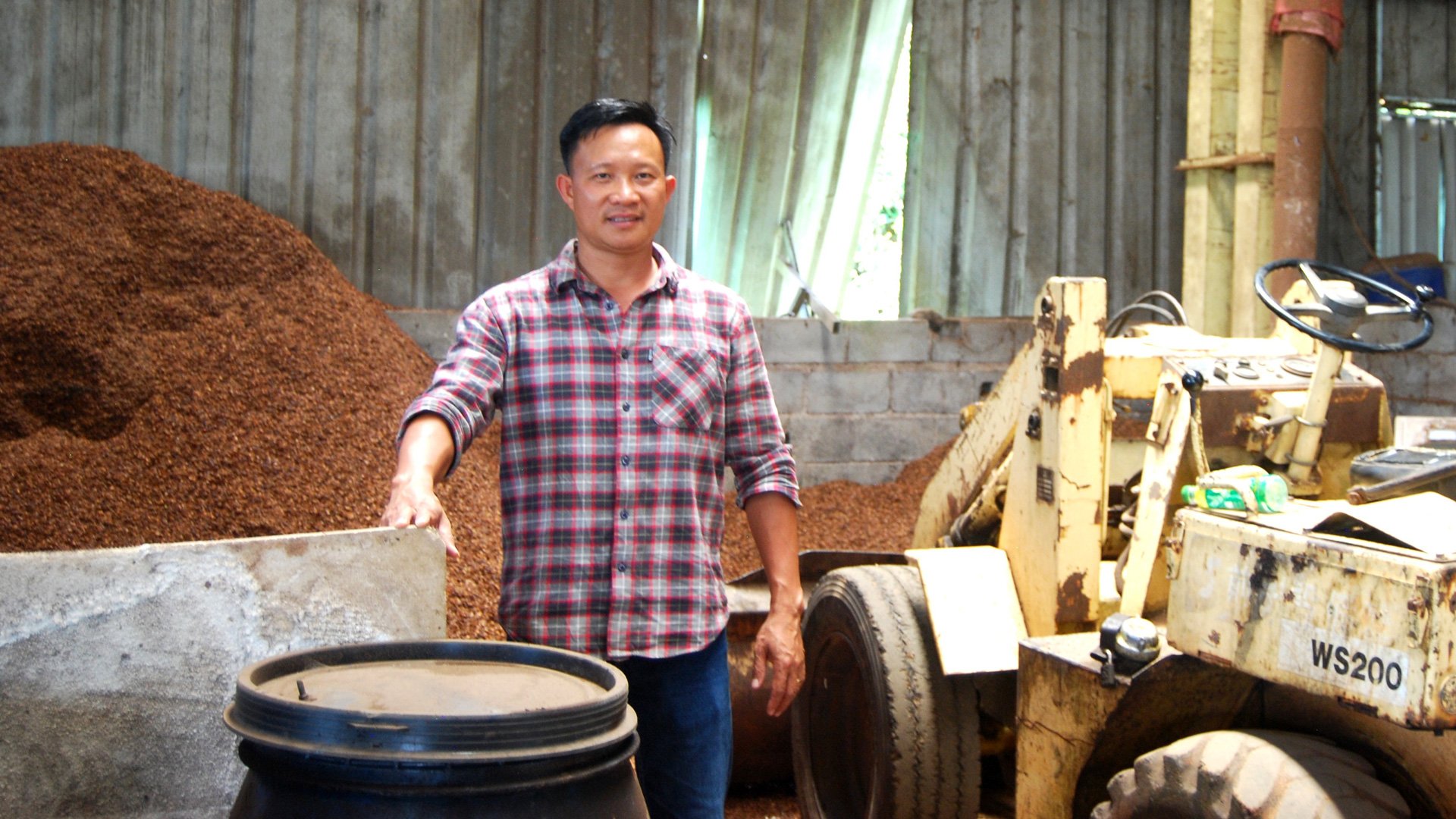 |
| In the factory producing activated carbon and wood vinegar oil from agricultural by-products of farmer Bui Ngoc Chau |
• TURNING AGRICULTURAL BY-PRODUCTS INTO CHARCOAL, VINEGAR AND HEAT
The 1,000 m2 activated carbon factory built on a rich garden of vegetables, grass, flowers, fruits, and coffee on an area of 30,000 m2 in Vinh Quang village, Hoai Duc commune, Lam Ha district looks quite impressive with machines, conveyor belts, furnaces, tanks, barrels, and towering pipes all researched, designed, installed, and operated by farmer Bui Ngoc Chau himself from 2021 to present. The area at the beginning of the factory is filled with a large amount of input by-products exploited from weeds, macadamia shells, coffee husks, and mulberry tree trunks; at the end of the factory are arranged layers of finished charcoal bags of round, finger-long pellets. Mr. Chau explained the function of each part in the closed-loop machinery system here: “Agricultural by-products from weeds, macadamia shells, coffee husks, mulberry tree branches, and coffee trees in the agricultural area of Lam Ha district are collected, dried or dried on site. First, they are put into a chopper or a small grinder. Next, they are passed through a compressor, mostly into round wood pellets, and a small part into wood chips. Finally, they are poured into a new version of the incinerator to operate and produce activated carbon, wood vinegar oil, and heat...”.
Accordingly, with an average ratio of 4 - 5 kg of agricultural by-products processed into 1 kg of activated carbon, priced at 15,000 - 20,000 VND/kg, used with probiotics also grown by farmer Bui Ngoc Chau, applied in the communes of Hoai Duc, Lien Ha, Tan Van, Tan Ha, Lam Ha district to improve the soil, helping plants increase nutrition, resist drought, storms and floods, especially the main coffee tree in the dry season only needs to be watered 3 - 4 times to maintain a good growth rate. In particular, when wood vinegar oil is automatically extracted from agricultural by-products, mixed with marine fish protein essence and sprayed on coffee trees after 1 week of watering, the leaves become thick green and increase natural disease resistance.
Mr. Chau mentioned the economic and environmental efficiency: “In the agricultural area of Lam Ha district, it is estimated that every year, we collect from 2,000 to 4,000 tons of agricultural by-products, mulberry stems and branches, macadamia shells, coffee stems and branches, weeds and nearly 50,000 tons of coffee husks. Through the machinery system of our farmers, we not only produce activated carbon and wood vinegar oil, but also cheap heat for drying high-quality agricultural products. Wood vinegar solution also has the effect of preserving food, stimulating the ability of livestock to digest food, eliminating the odor of waste and cleaning the environment…”.
• DOZENS OF HALO OF AREA USING 2-IN-1 ACTIVE INGREDIENTS
Experiencing from the activated carbon processing factory to the open space of the fresh air of the pond, lake, and 3-hectare green garden of farmer Bui Ngoc Chau in Vinh Quang village, Hoai Duc commune, Lam Ha district, the reporter also recognized the "quiet contribution" of the essential oil extracted and processed from neem trees growing in the coastal and sandy areas of Ninh Thuan . It turns out that there is an additional machine workshop at the bottom of the farm hill, farmer Bui Ngoc Chau also invented and connected a cyclical machinery chain, producing essential oil products extracted from branches, leaves, and seeds of Ninh Thuan neem trees to comprehensively prevent pests and ensure strong green growth of crops. Specifically, from June to August every year, farmer Bui Ngoc Chau goes to Ninh Thuan to buy dozens of tons of dried seeds and leaves of neem trees and brings them back to the farm to extract essential oils with a daily capacity of about 50 liters, preserving for use up to 1 year. In the ratio of 1 liter of neem essential oil dissolved in 100 liters of clean water combined with activated carbon from Lam Dong mountains to spray directly on plants.
“Spraying coffee trees and fruit trees with neem essential oil combined with activated carbon, wood vinegar, and fish protein on the foliage or watering the roots 4-5 times a year after harvest and before the rainy season is 85-95% effective in preventing and controlling mealybugs, black leaf aphids, and rust... Similarly, vegetables, tubers, and fruits are sprayed once every 7 days, controlling 85-95% of pests. As a result of using most of this 2-in-1 active ingredient, our farm plants photosynthesize more healthily every day, absorbing carbon dioxide that causes the greenhouse effect, and at the same time releasing oxygen for a clean environment...", farmer Bui Ngoc Chau analyzed.
By May 2025, dozens of hectares in the agricultural area of Lam Ha district were shared by farmer Bui Ngoc Chau with the process of using 2-in-1 active ingredients from activated carbon from the mountains and neem essential oil from the sea, only costing 7-10 million VND per year to protect the "health" of coffee trees. Meanwhile, coffee productivity and quality increased by 20-30% each crop year...
(TO BE CONTINUED)
Source: https://baolamdong.vn/kinh-te/202505/ket-noi-bien-rung-voi-net-zero-bai-3-b9a076e/






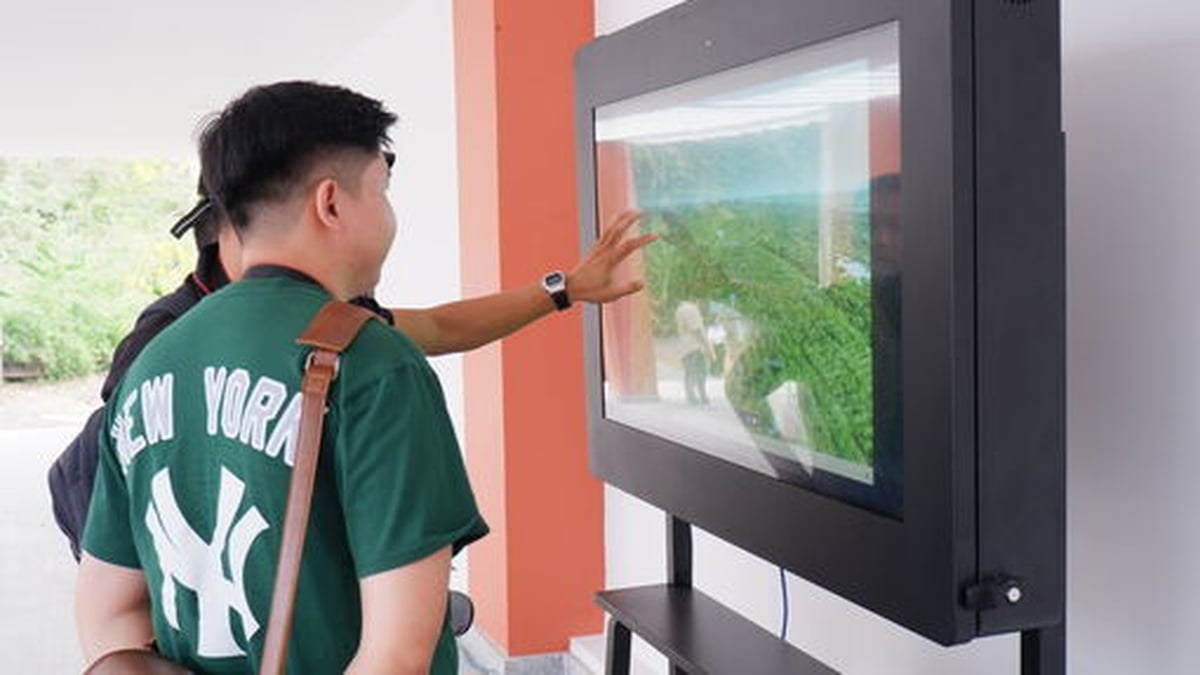

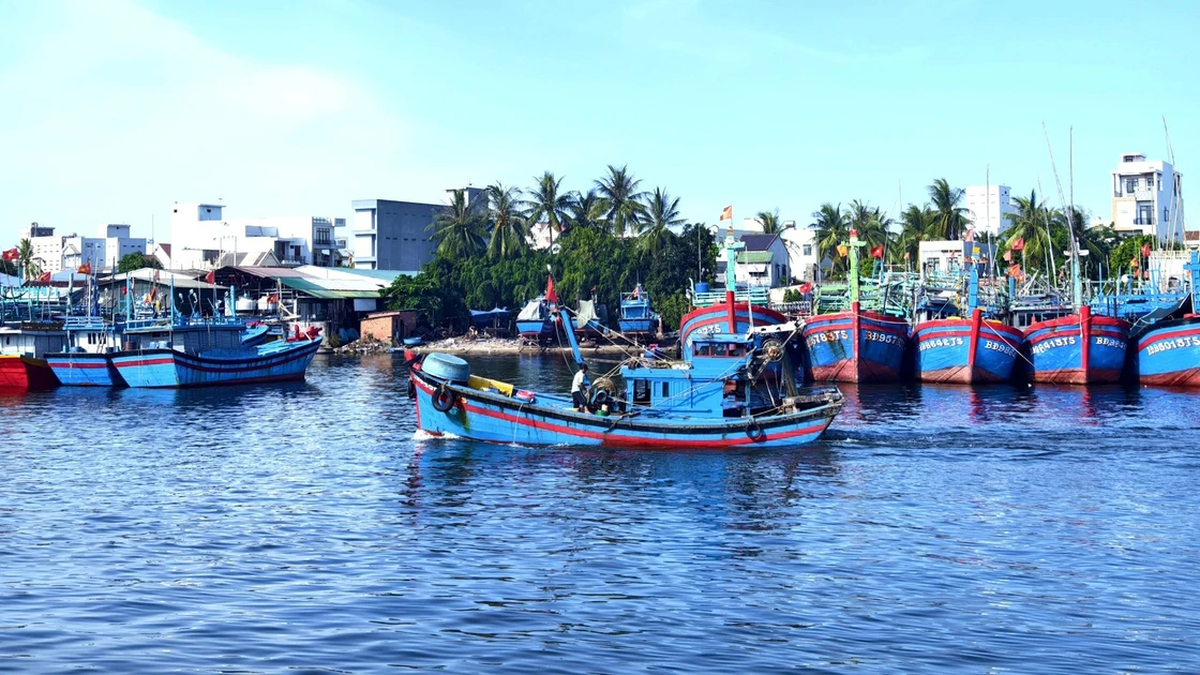

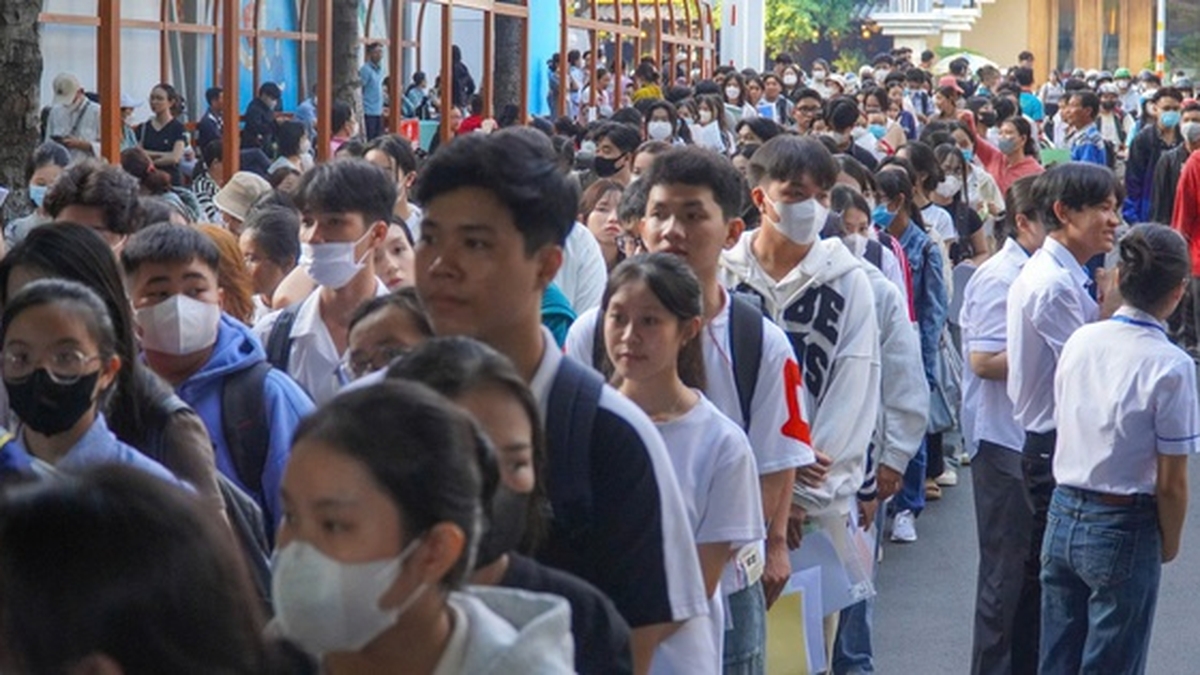
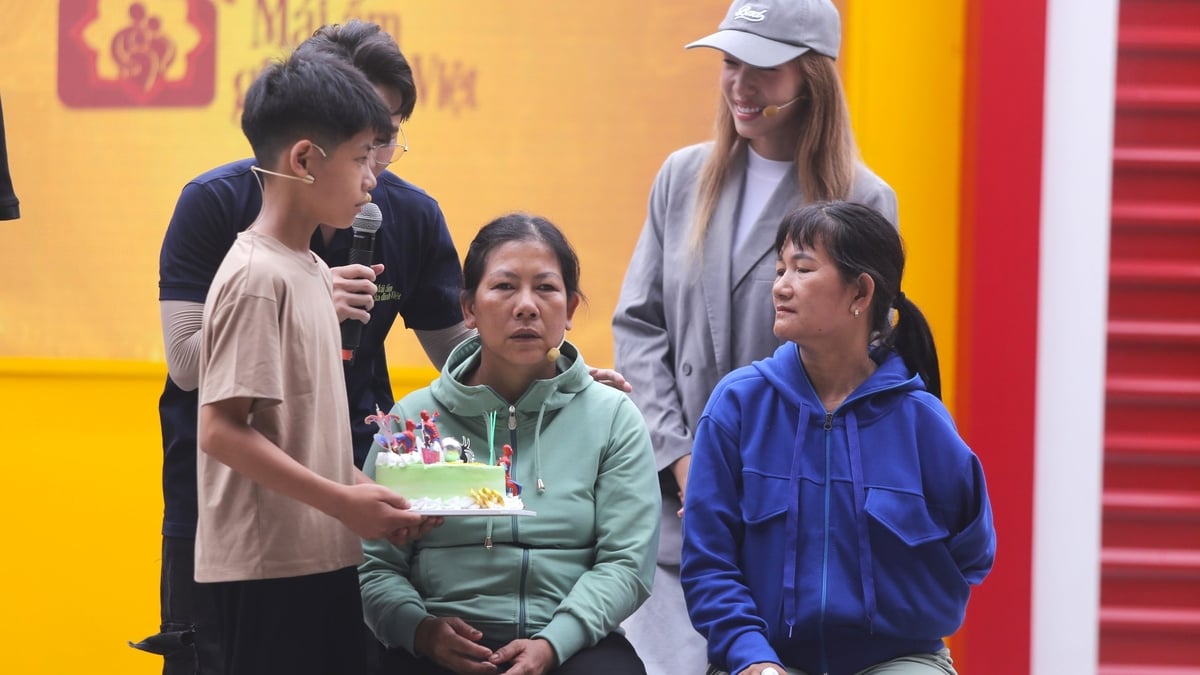










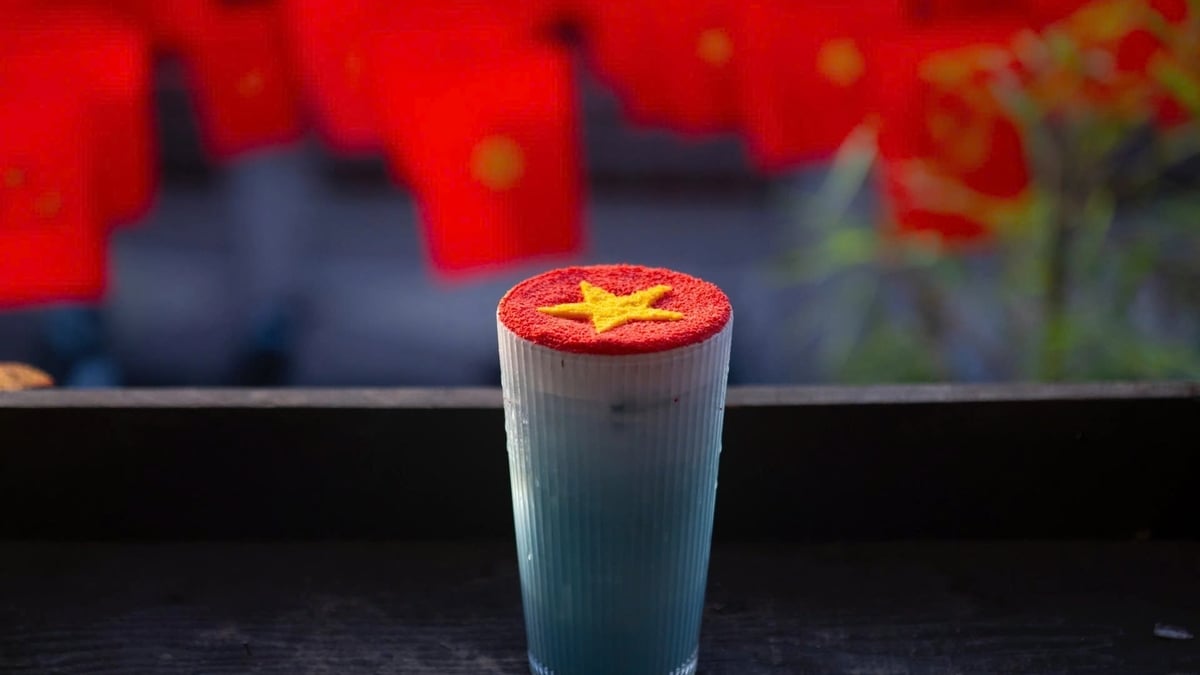


![[Photo] Stunning Vung Ang-Bung Expressway before opening day](https://vphoto.vietnam.vn/thumb/1200x675/vietnam/resource/IMAGE/2025/8/18/8a75cb48a68f4de8b56d6a9e7c268669)



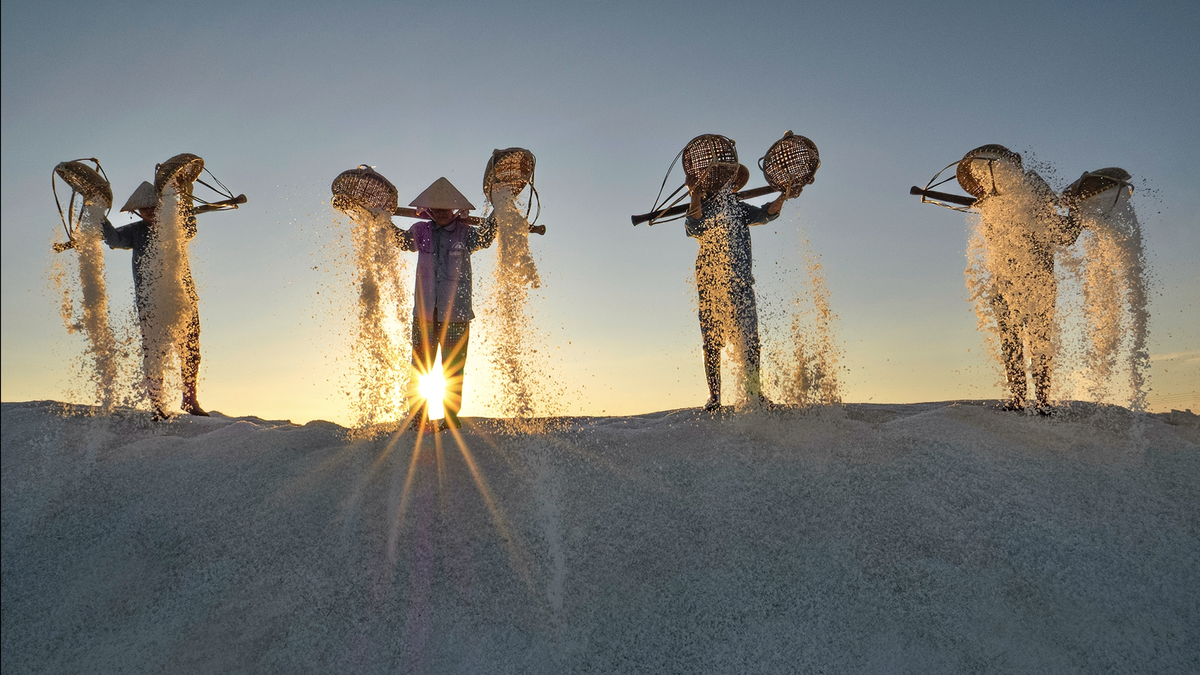




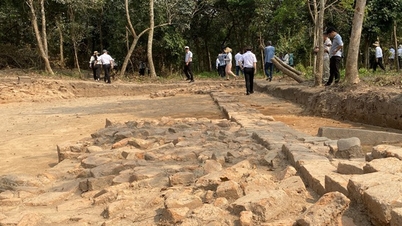

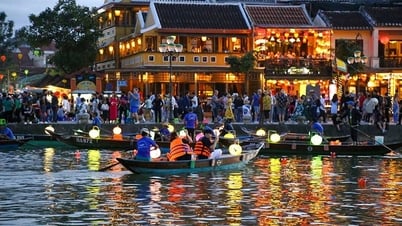

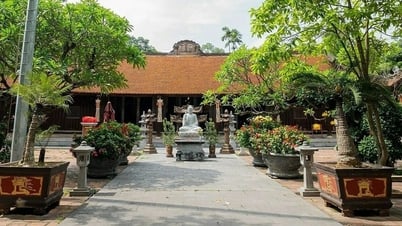


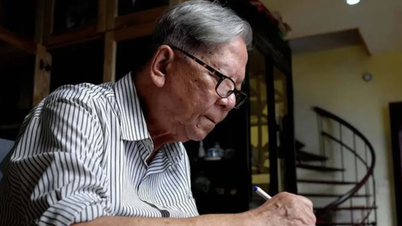






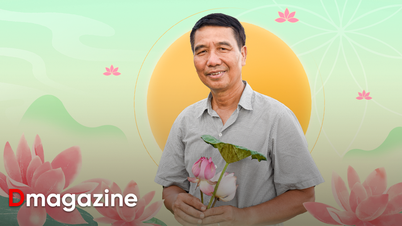





![[VIDEO] Petrovietnam Party's imprint](https://vphoto.vietnam.vn/thumb/402x226/vietnam/resource/IMAGE/2025/8/18/0456b0c5e3ac4893b4e75b4e4a8d026f)









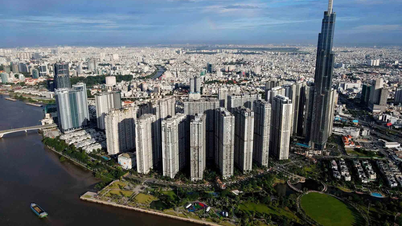









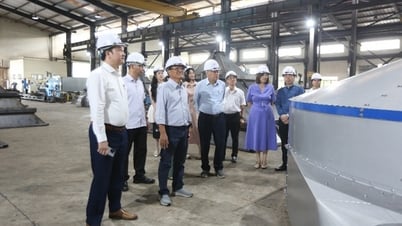

























Comment (0)